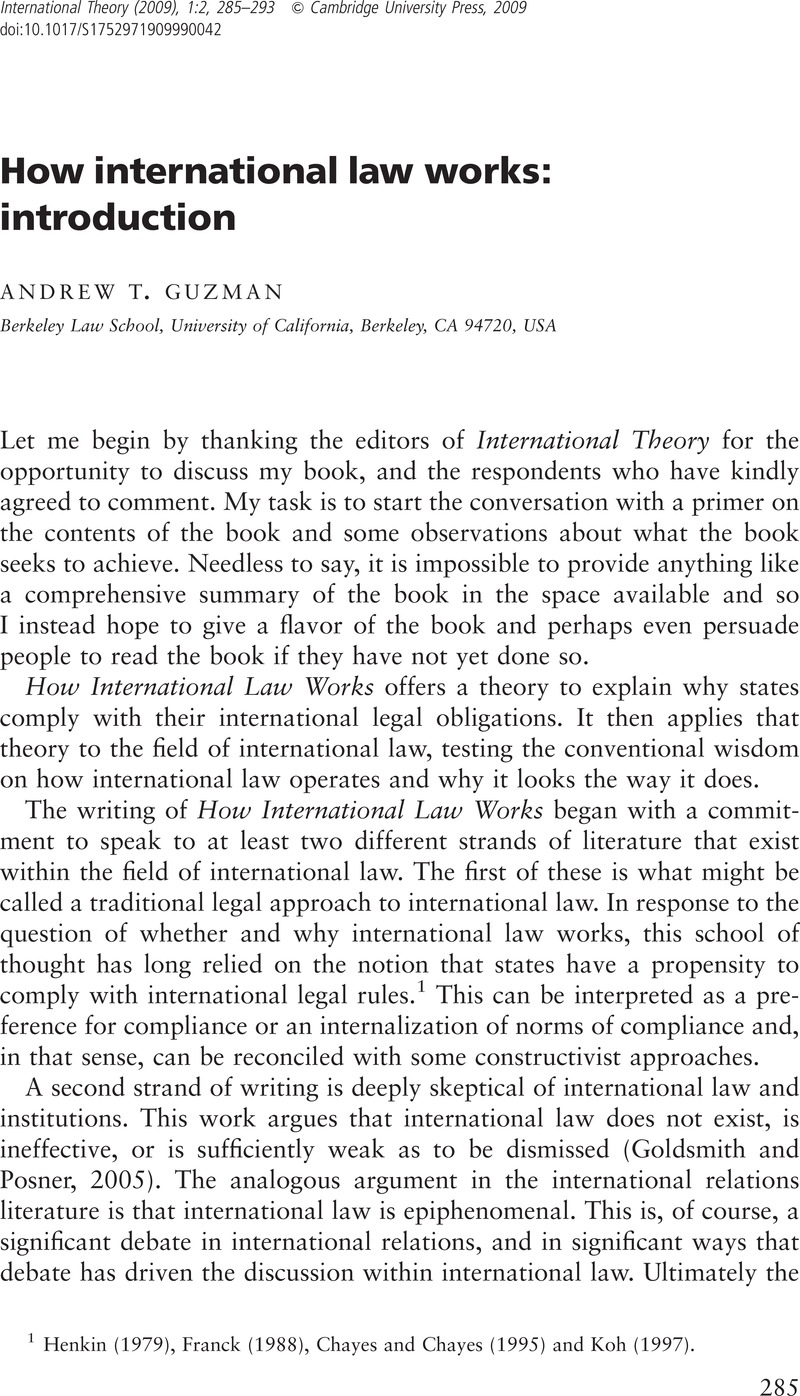Crossref Citations
This article has been cited by the following publications. This list is generated based on data provided by Crossref.
Thompson, Alexander
2009.
The rational enforcement of international law: solving the sanctioners’ dilemma.
International Theory,
Vol. 1,
Issue. 2,
p.
307.
Sylvest, Casper
2010.
Realism and international law: the challenge of John H. Herz.
International Theory,
Vol. 2,
Issue. 3,
p.
410.
Burri, Mira
2013.
The UNESCO Convention on Cultural Diversity: An Appraisal Five Years after Its Entry into Force.
International Journal of Cultural Property,
Vol. 20,
Issue. 4,
p.
357.
Hallwood, Paul
2016.
International Public Law and the Failure to Efficiently Manage Ocean Living Resources.
Marine Resource Economics,
Vol. 31,
Issue. 2,
p.
131.
Beebeejaun, Ambareen
2018.
The role of international investment agreements in attracting FDI to developing countries.
International Journal of Law and Management,
Vol. 60,
Issue. 1,
p.
150.
Fontestad Portalés, Leticia
2021.
Reflexiones sobre la aplicación del principio de reciprocidad en la orden europea de detención y entrega.
Estudios Penales y Criminológicos,
p.
137.


